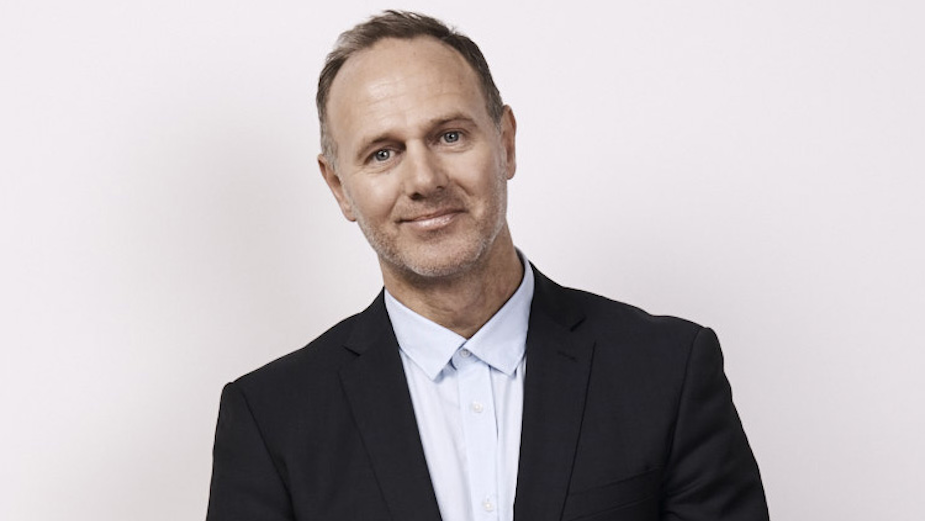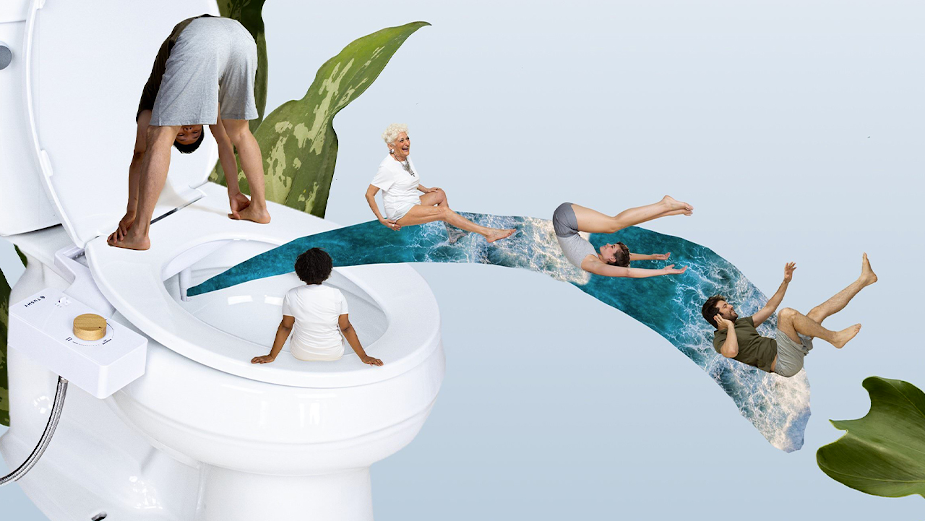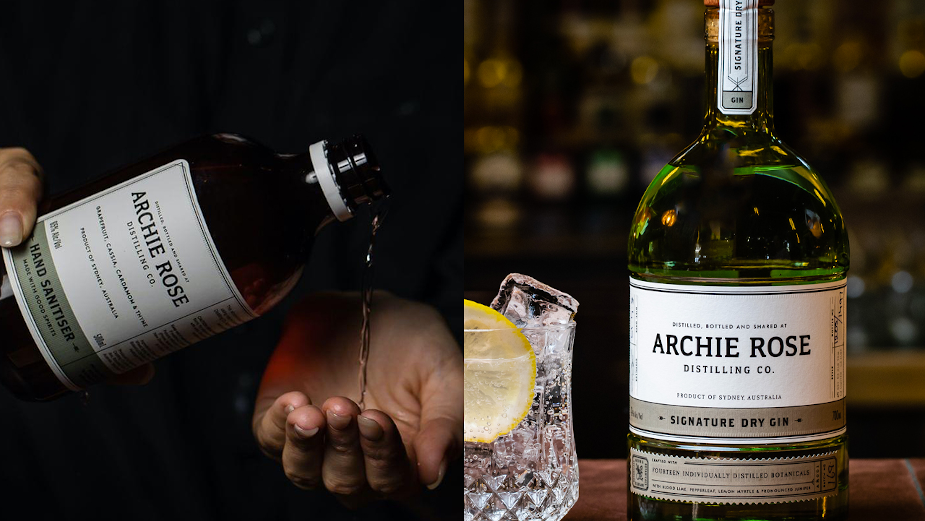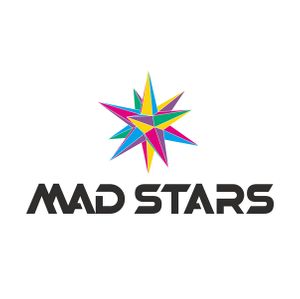
AD STARS 2020: The Brands Saving the World from Covid-19

Australian agency The One Centre tracks hosts a quarterly ‘ONEtalks’ series showcasing the brands disrupting the world. At AD STARS 2020, The One Centre’s CEO John Ford revealed how brands like Archie Rose, Dyson, Land Rover, Neolix and Louis Vuitton quickly span their resources to help people stay safe and healthy when the COVID pandemic began to spread around the world.
Here’s a selection of some of the brands he showcased.
Tushy is saving us from toilet paper hoarders
When news of the coronavirus first hit, people crammed their shopping trollies full of toilet paper, creating a tenfold surge in demand for bidet company Tushy. Founded in 2015 by Miki Agrawal, Tushy is on a mission to replace toilet paper with bidets. Its team of crusaders are fighting for “clean bums and reduced global wastefulness” given that 15 million trees and gallons of water are used to make toilet paper every year.
On 9th March, Tushy sales began to ramp up to 10 times its normal figures, hitting its first $1 million in sales per day. Tushy was forced to move its entire product line to pre-orders while scaling up production to meet demand, prompting this observation from Fortune: “Might the legacy of the coronavirus crash be… bidets?” A mission that once seemed impossible – convincing Americans to use bidets over toilet paper – now seems conceivable.
Tushy is one of many brands who are suddenly rising as a result of Coronavirus. As TechCrunch says: “Tushy, Zoom, Blue Apron .. these companies all have something in common – they offer solutions to problems that, until recently, were not all that urgent.”
Tushy’s success is helped by its poop-puns and playful tone of voice, by the simplicity and affordability of its products, and its commitment to giving back: a portion of each sale provides toilet facilities for Indian slums. Tushy has raised $2.9 million since its founding, but has always been focused on its own sustainability by not over-hiring or spending too much of its capital. So it was perfectly poised to scale up – and publicise – its success.

Zwift offers ‘gamified fitness’ for housebound athletes
Before the coronavirus hit, Zwift had already accrued over one million subscribers, and a peak of 13,000 simultaneous users in December 2019. This year, Zwift hit a new high of 35,000 concurrent users, a spokesperson told ONEtalks, while activities played per day on Zwift is up 313% over the same period in 2019.
Part social media platform, part computer game, part personal trainer, Zwift ‘gamifies’ fitness by rewarding users with new levels, virtual kit and ‘power ups’.
Restrictive lockdowns have triggered a boom in physical bike sales – and a boom in demand for indoor sports platforms like Zwift, which 'gamify' fitness. As The Guardian reported: “Bicycles are the new toilet paper: bike sales boom as coronavirus lockdown residents crave exercise.”
Zwift’s spokesperson says the company has had to adapt to surging demand by offering new workouts, more in-game content and more route variety: “There have of course been challenges faced, but this is something felt by companies the world over. We’ve coped well with the increase in demand and changes to plans.”

Archie Rose’s pivot from gin to zesty hand sanitiser
In January, as Coronavirus began to spread, it triggered a rush on hand sanitiser around the world. Distilleries were quick to respond, including Sydney’s Archie Rose Distilling Co, which launched its first batch of hand sanitiser bottles on 23rd March – the same day the Australian government closed all non-essential services.
Fifteen bar staff who would otherwise have lost their jobs were redeployed to the new hand sanitiser bottling line. When the first batch sold out in two hours, another 12 workers were hired to keep up with demand with over 100,000 bottles sold in one month. The venture has been so popular, Archie Rose is now selling 20-litre hand sanitiser cubes for $599.
Why does it matter? With its beautiful branding and natural botanic ingredients, Archie Rose hand sanitiser is wonderfully ‘on brand’. This means it sells at the premium price of $20 per bottle, helping to keep more people employed. Archie Rose gin sales have also increased throughout the pandemic, a spokesperson told ONEtalks.
Each batch features unique ingredients like grapefruit, cassia and finger lime, highlighting the company’s culture of experimentation (it once launched a Vegemite-on-toast flavoured gin). According to the AFR, which featured Archie Rose on its ‘Most Innovative’ list in 2019, innovation drivers are “baked into its DNA”. Archie Rose is now using smoke-tainted grapes damaged in Australia’s recent bushfires to make brandy and other spirits, supporting wine growers.
Land Rover sends the world’s toughest car in to battle
Jaguar Land Rover has a storied history of responding to crises thanks to a 65-year partnership with the Red Cross. When the novel coronavirus began to spread in Europe, Jaguar and Land Rover immediately deployed a fleet of 160+ cars including the new Land Rover Defender. The Defender its most durable, rugged model of all, so it seems only right that it supported emergency responses to the coronavirus crisis in the UK, Spain, France, South Africa and Australia. In April, Land Rover also began donating hundreds of protective visors made on its 3D printers to frontline NHS staff.
In Australia, new car sales plunged a record 48.5% in April – the biggest fall recorded in almost 30 years of tracking car sales. Jaguar Land Rover is one of many automotive brands that’s hurting: it stood down half its 40,000-strong global workforce in April, with sales dropping 31% in Q1 2020 (from 158,916 last year to 109,869).
Despite a glut in car sales, the company was quick to offer its cars, research and engineering expertise to emergency response efforts, building long-term brand equity in the process.
Neolix delivers food and medicines in China
Neolix’s adorable self-driving vans are suddenly in demand with orders doubling in the past two months. They’ve been used to deliver food and medical supplies to hard-hit areas in China, to disinfect streets or replace quarantined workers – and best of all, they never get sick.
After producing only 125 units since May 2019, Neolix received over 300 orders in Q1 2020, a spokesperson told ONEtalks: “In Q2, we are still seeing growth not only in the production market, but also through technological cooperation.”
Before COVID-19, public perception of autonomous vehicles has been mixed: 50% of people surveyed by Deloitte still worry that autonomous vehicles are unsafe, especially on highways.
Self-driving car companies like Neolix stand to benefit from the coronavirus – not only from a spike in sales, but from regulatory barriers being eased during the outbreak, and a shift in public opinion. As Yu Enyuan, founder of Neolix, told SCMP: “Demand has been surging since the outbreak and more importantly, people’s perception toward driverless delivery had a complete 180-degree shift.”
As Mashable observes: “What used to be considered a scary, uncertain technology for many Americans looks more like an effective tool to protect ourselves from a fast-spreading, infectious disease.”
The One Centre is hosting its next ONEtalks series in February 2020. To register, click here.










